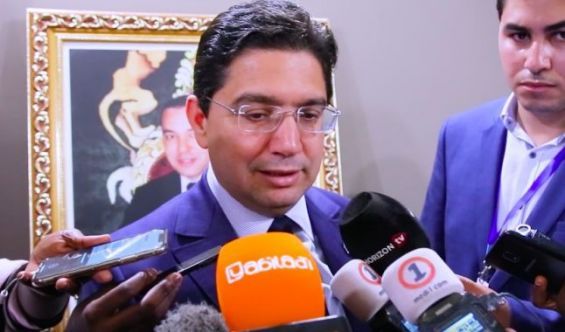«For the first time in history, the international community adopts a pact on migration», said Monday in Marrakech the Moroccan Minister of Foreign Affairs and International Cooperation Nasser Bourita. «The document is the first of its kind and it is expected to fill the gap in this area», he told reporters on the sidelines of the Intergovernmental Conference for the adoption of the Marrakech Pact on Migration.
The Marrakech Pact on migration was adopted by 123 countries
«This is a political document that reflects the volition of the international community to treat migration as a global issue», he said, adding that the pact «is expected to push these countries to implement national policies».
The minister recalled that this conference is hosted as the international community and the UN is celebrating the Human Rights Day which adds a «special significance» to the event.
Nasser Bourita said that 123 countries adopted the Pact on Monday, reporting that although some states were present during the process, negotiated and amended it, they did not attend this «formal adoption».
«We hope that when they see the implementation of the Marrakech Pact, they would understand that there have been a couple of misunderstandings and fake news surrounding this document, which respects countries’ sovereignty».
Africa must fight against misconceptions
Bourita who is also president of the Intergovernmental Conference, insisted that «multilateralism cannot be à la carte». «Transnational issues can only be solved through dialogue and cooperation. It is important to deal with migration through international cooperation», he stated.
As for the African continent, Nasser Bourita indicated that «Morocco wants to contribute to this pact through Africa». «I think that the initial response will be provided today through the signing of the Headquarters Agreement for the creation of the African Observatory for Migration and Development», he said.
«Africa needs to develop its own database, its own statistics and its explanations for the phenomenon. It is a way of fighting against all the misconceptions related to migration and Africa».
«We need to write our own history of African migration and the first responses will be provided by this observatory», he concluded.





 chargement...
chargement...













